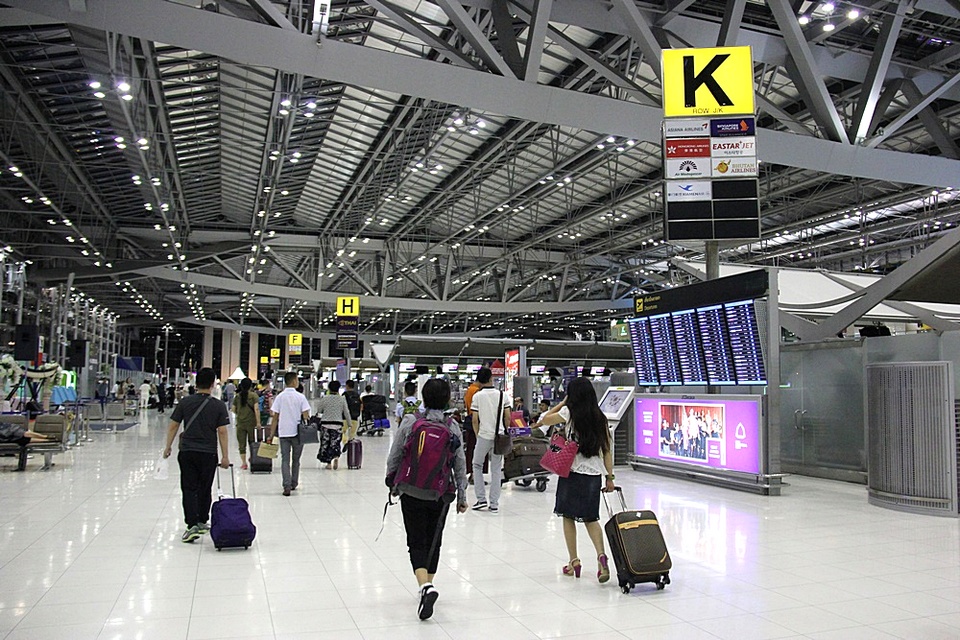
The Ministry of Tourism is already suggesting that, come next month, the whole of the prior online registration process for international visitors could become ancient history. In that proposed scenario, all you would need to enter would be your passport, an airticket, your visa (if needed) and your proof of vaccination. Maybe. The prime minister has said he will wait until after the Songkran holiday to make a decision.
What is missing from the optimistic prognosis is the future of compulsory medical insurance. At present, all foreigners (except work permit holders) must have US$20,000 anti-Covid cover, including hospitalization. Although the Tourist Authority of Thailand predicted this might reduce to US$10,000 sooner or later, no government agency has specifically stated that compulsory Covid insurance will end altogether. It is easily available online for around US$100 for a month for pre-arrivals from age 1-99.
Although government websites speak currently of the need to obtain cover for the whole of the proposed stay, it is enough for the Thailand Pass pre-registration bureaucracy and the vital QR code to have just one month of anti-Covid cover. Indeed, the Thai General Insurance Association website will register you only for 30 days, merely stating that you can renew once here if needs be. But extensions of stay in most cases do not require evidence of ongoing medical cover. So very few people bother.
Special rules apply to those retirees with an O/A annual retirement visa issued by Thai embassies abroad. They need comprehensive, not Covid only, medical insurance worth US$100,000 to obtain the visa in the first place. They will also need it on applying for an annual extension of stay at immigration offices, although the amount is much smaller – around US$13,000 or 400,000 baht for hospitalization – until October 2022. Thai Cabinet news releases last year stated that the renewal insurance minimum would rise to US$100,000 on that date. Self-insurance has also been declared a possibility as comprehensive cover, as opposed to Covid only, can be impossible for the elderly or those with pre-existing conditions.
Of course, most retirees do not live here on the O/A option, but rather have obtained the annual “O” visa awarded by Thai immigration offices to retirees and foreigners married to Thais, or have switched to the Elite 5-year visa. None of these options require any form of medical insurance at the initial or renewal or extension stage. The hardly-used Special Tourist Visa and the O/X ten year visa introduced several years ago also need ongoing medical insurance – perhaps a significant reason for their unpopularity with foreign visitors.
So the future remains uncertain. Will Thailand cancel all medical insurance requirements and return to 2019, howbeit with the barbed-wire still surrounding the O/A anomaly? Or will short-stay tourists be exempted while those with any long stay visa will be saddled with a new requirement? Or will the current policy of insurance for all be maintained to appease the country’s insurance company lobby which has benefitted (with exceptions} beyond all expectations from the Covid pandemic.
Some clues may be gleaned from Cambodia where the whole insurance issue has travelled through many stages. Late last year, premier Hun Sun announced that Cambodia was opening up for tourism, although health testing on entry and medical insurance would be required. Last month, the health insurance became “recommended” rather than compulsory and all on-arrival testing was dropped for fully-vaccinated tourists. The country now has the easiest admission rules in south east Asia and tourism is increasing by leaps and bounds.
Of course, medical insurance is common sense and should be encouraged. The issue for Thailand is in the detail. It hardly seems sensible to ring-fence a small number of expats whilst most remain scot free as it were. Although it is commonly argued that uninsured, longstay expats should not become a burden to the Thai health system, the reality is that most unpaid bills are from the short-term tourist sector. The issue then arises whether cheap insurance packages can cover all the hazards and accidents which can occur without warning. Non-payment by companies can be as big a problem as being uninsured. Time is running out for Thailand to get its insurance act together.
 |
 |
 |





